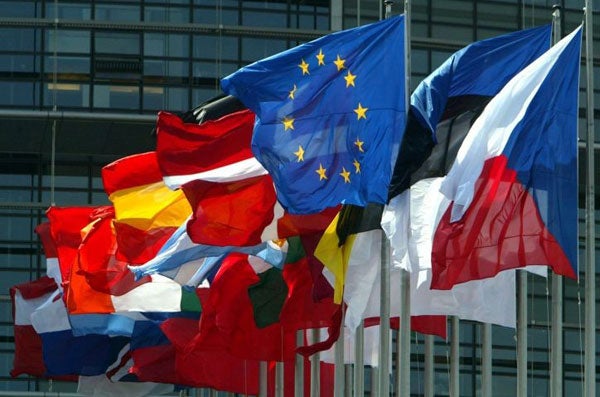Europe debate: David Cameron warned that EU will ignore Britain's demands for 'special treatment'
MPs urge Prime Minister to seek compromise in bid to return powers to London as PM hints he would campaign for Britain to remain in EU in the referendum promised by end of 2017

David Cameron has been warned that he will fail to win a “new settlement” for Britain inside the European Union if he demands “special favours”.
In a report to be published today, the Commons Foreign Affairs Select Committee says the Prime Minister will have a better chance of getting a new deal if he proposes reforms for the EU as a whole. They urge a “constructive and co-operative tone and approach”.
Although Mr Cameron has called for EU-wide reforms, he has also launched a government-wide review of the powers that could be returned from Brussels to London. Eurosceptic Conservative MPs hope this process will produce a long “shopping list” of demands for the negotiations ahead of the in/out referendum he has promised for 2017.
The all-party committee warned: “We are clear that UK proposals for pan-EU reforms are likely to find a more favourable reception than requests for further ‘special treatment’ for the UK. We are sceptical that other member states would renegotiate existing EU law so as to allow the UK alone to reduce its degree of integration, particularly where this could be seen as undermining the integrity of the single market.”
It urged Mr Cameron to reject calls by Eurosceptics to threaten to leave the EU as a way of putting pressure on other member states to make concessions. The report says: “Our sense is that other member states want the UK to remain an EU member. However, we do not think that a UK government could successfully demand ‘any price’ from other member states for promising to try to keep the UK in the union.”
The MPs warned that Mr Cameron should not bank on a full-scale revision of the EU’s governing treaties, saying many member states wanted to avoid that in case a new blueprint was rejected in the referendums some countries would have to hold to ratify it. They rejected the option of Britain leaving the EU but remaining part of the single market, saying that would leave it with “no effective power” to shape the market’s rules.
Yesterday the Prime Minister rounded on Eurosceptics who want Britain to withdraw from the EU, accusing them of being in “denial” when they claimed that the UK could go it alone and succeed in the global economy.
In a speech in Essex setting out his foreign policy, the Prime Minister appeared to target Conservative Europhobes as well as Nigel Farage’s UK Independence Party as he attacked their “stop the world, I want to get off” approach. He said: “There are those who say we should turn our backs on the world and on our wider obligations; that we should cut ourselves off from influential organisations in the belief that we can go it alone. I know how appealing some of these arguments are but they amount to the same thing: denial.”
He also rejected the arguments of those who want to cede more powers to international bodies. He proposed a middle way, arguing that Britain would be on the path to national renewal and would enjoy a big global footprint if it became more competitive at home, engaged with the fastest growing countries in the world and projected its values abroad.
In a speech welcomed by pro-European Tories, Mr Cameron hinted strongly that he would campaign for Britain to remain in the EU in the 2017 referendum.
“This is about boldly pursuing our interests – not by withdrawing from the world but engaging with it,” he said.
Join our commenting forum
Join thought-provoking conversations, follow other Independent readers and see their replies
Comments
Bookmark popover
Removed from bookmarks